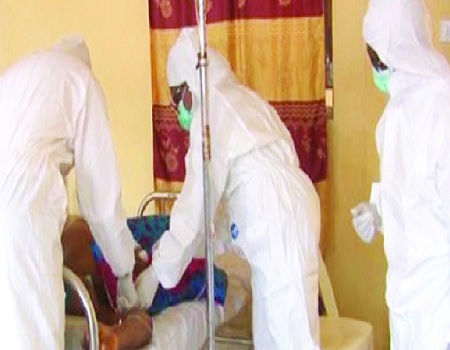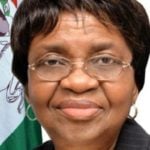The Nigeria Centre for Disease Control(NCDC) has disclosed that the country said there had been 933 confirmed cases and 173 deaths from Lassa fever as at Week 39, from 25 states, adding that of all confirmed cases, 71 per cent were from Ondo, Edo and Bauchi States.
The Director-General of NCDC, Dr Ifedayo Adetifa, at the ministerial briefing and update on COVID-19 response and development in the health sector further disclosed that a total of 10, 217 suspected cases of cholera, including 233 deaths, have been recorded in 31 states this year.
He said there was a 47 per cent increase in the number of new suspected cholera cases in August epidemiological week 36 to 39 (4017) compared with July epidemiological week 31to 35.
Adetifa further said, 18,545 confirmed measles cases, and 234 deaths were recorded as at week 39 in 36 states and the Federal Capital Territory (FCT); while for monkeypox 1,180 suspected cases, 481 confirmed cases, and seven deaths have been recorded in 2022.
He said children under the age of five years were particularly at risk and that at the moment 40 local government areas had active cases.
Adetifa stressed that the centre had continued to encourage parents to vaccinate children against measles to bring it under control.
Adetifa also expressed anxiety over the Sudan strain of Ebola virus which was not covered by available vaccines and that there were neither licenced vaccines nor treatments for it.
He, however, assured that all concerned authorities were on high alert given the realities of globalisation and the fact that an infection such as Ebola was just a plane flight away from any country.
“We have a bit of reassurance because we have some experience in handling Ebola.We have the diagnostic capacity, but we will rather not have it. We would rather not have to respond to it especially with the strain that has no vaccines and no licensed treatments”.
“Point of entry surveillance is at a very high level. Passengers travelling from Uganda or who passed through Uganda are being followed up for 21 days to ensure that their health is clear.
“The difference between Ebola and something like COVID-19 is that victims need to be actually sick and symptomatic before they can transmit.
“Ebola allows professionals to pick up likely suspects early but what it also means is that at the time that the victims is identified, everybody around is at significant risk.”
On COVID-19, Adetifa said that in more than two years into the outbreak, Nigeria had conducted more than five million tests; which confirmed 65,741 cases and 3,155 deaths.
Adetifa said globally, cases had continued to decline in various countries, as he confirmed that in Nigeria, case trends have varied.
ALSO READ FROM NIGERIAN TRIBUNE
He confirmed that with additional tests, the spread of COVID-19 had slowed down significantly to the odd one here and there.
Adetifa encouraged Nigerians to receive the available vaccines to prevent the emergence of new variants.
“At the moment, we are working to review the COVID-19 guidelines and hopefully we will ease or roll back the remaining restrictions.
“We shall put measures in place to assess the impact of the rollback, especially with imminent new type travels and the expected end-of-year gatherings.
“We will be putting in place enhanced surveillance through testing, targeting 12 states at the moment to ensure that with epidemiological data, we can pick up any changes that occur and respond appropriately,” he explained.






